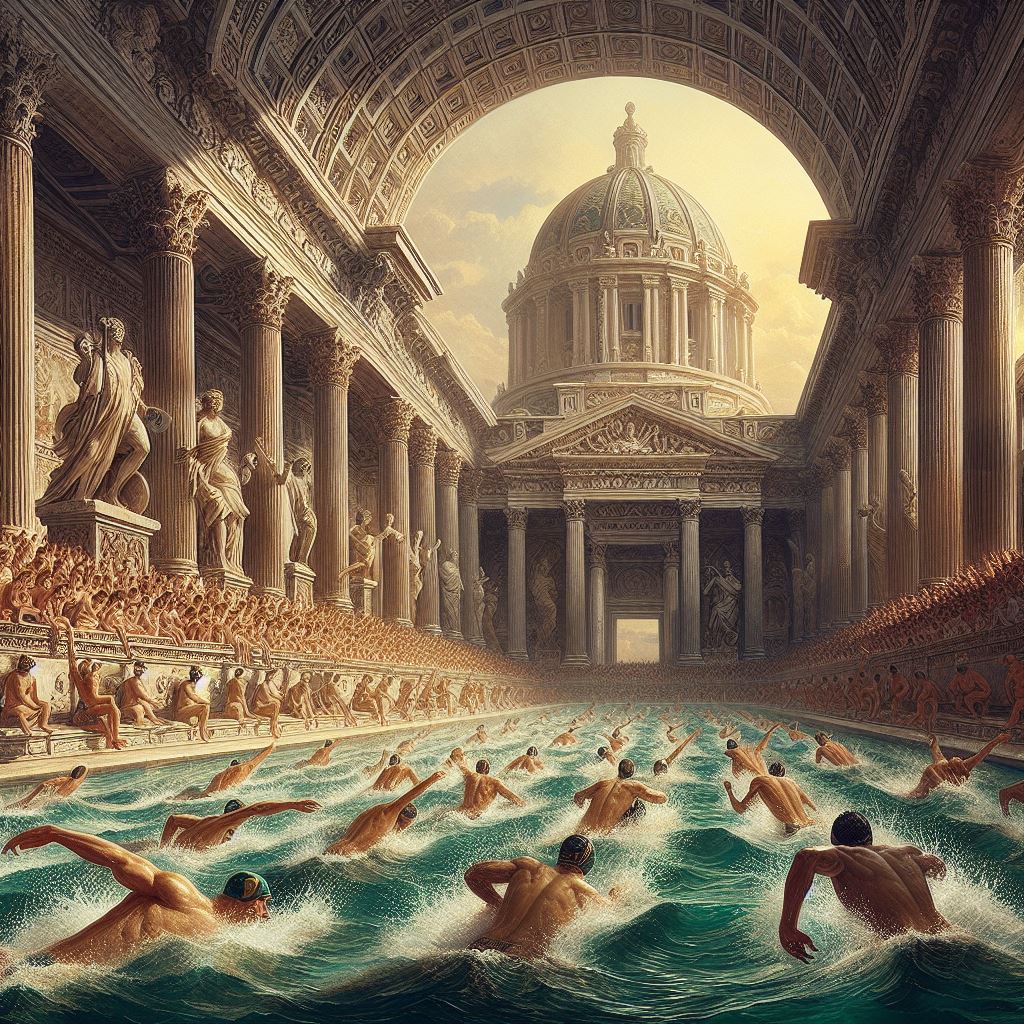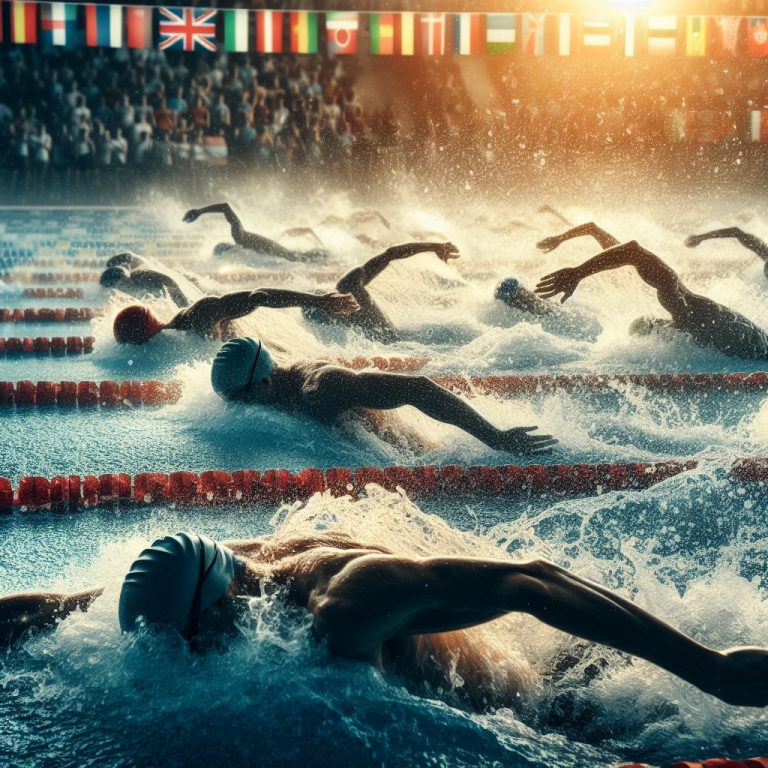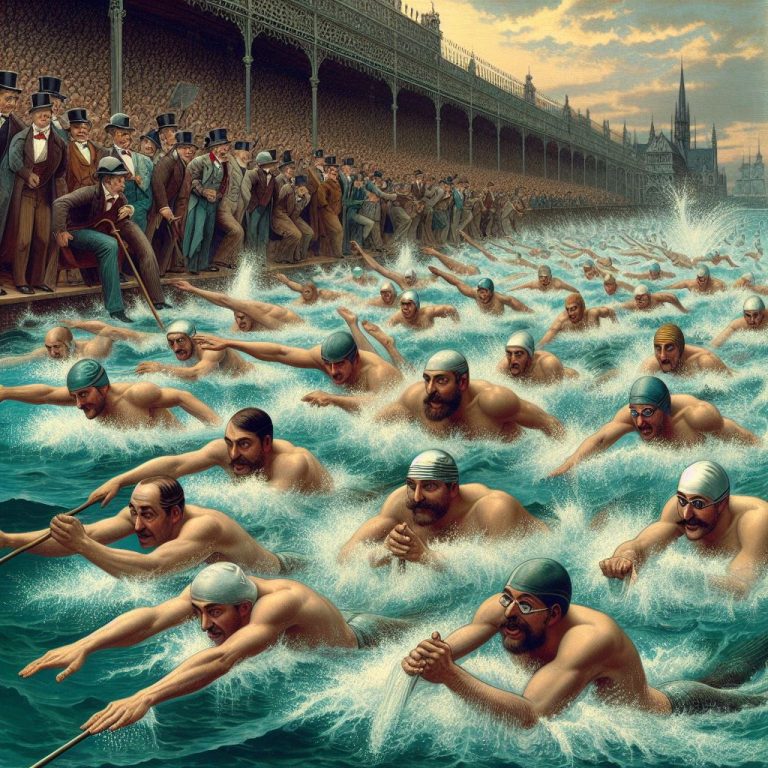Introduction:
Swimming, a skill and sport that has evolved over the centuries, leaving deep roots in human history. One of the most exhilarating aspects of swimming, the competitive spirit, can be traced back to the ancient world. In this article, we dive into the origins of the first swimming race, exploring how this water sport has shaped history.
Ancient beginnings:
The first recorded swimming races date back to ancient Greece, a civilisation that celebrated physical strength and athletic achievement. The Greeks considered swimming to be an essential skill, particularly in coastal regions where maritime activities were common. However, it was in the Olympic Games that swimming competitions found their formalised beginnings.
Olympic genesis:
The Olympic Games, held in Olympia, Greece, since 776 BC, were a celebration of physical strength and power. Initially, the Games featured mainly track and field events, but over time new sports were introduced. The inclusion of swimming as an Olympic event is attributed to the ancient Greeks.
Olympic genesis: The Olympic Games, held in Olympia, Greece, since 776 BC, were a celebration of physical strength and power. Initially, the Games featured mainly track and field events, but over time new sports were introduced. The inclusion of swimming as an Olympic event is attributed to the ancient Greeks.
The first swimming races were held in open water, often in the nearby river Alpheus. Athletes swam from one bank to the other, showcasing their aquatic skills and endurance. The winner was celebrated not only for their physical strength, but also admired for their ability to navigate quickly and gracefully through the water.
Roman influence:
As the Roman Empire expanded, so did the popularity of swimming. The Romans adopted the recreational and competitive aspects of swimming, organising races in pools and open waters. Swimming became an integral part of Roman culture, with notable figures such as the emperor Augustus being renowned for their swimming skills.
Decline and Resurgence:
After the fall of the Roman Empire, swimming as a competitive sport declined in popularity. However, it re-emerged during the Renaissance when interest in ancient Greek and Roman cultures was revived. Swimming competitions re-emerged in Europe during the 18th century, with various cities organising races in rivers, lakes and artificial pools. Nineteenth-century renaissance:
The nineteenth century marked a significant resurgence of interest in swimming as a competitive sport. Swimming clubs and societies were created, helping to formalise rules and techniques. With the advent of indoor swimming pools, swimming races became more organised and accessible.
Conclusion:
The origins of the first swimming race are deeply rooted in the ancient traditions of the Greeks, particularly in the context of the Olympic Games. From competitions in the river Alpheus in ancient Greece to the renaissance of swimming and the subsequent rise of swimming clubs, the journey of competitive swimming is a testament to mankind’s enduring fascination with the art of swimming. Today, swimming races continue to captivate audiences around the world, paying tribute to a rich history that spans millennia.
Are you ready to dive into this ancestral sport? Hold your breath and come for your first swimming lesson!




